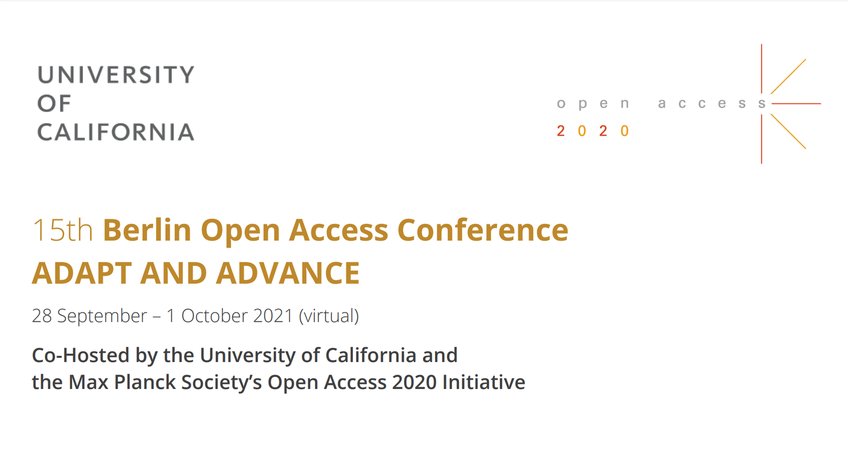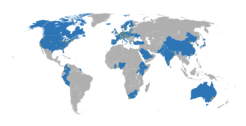
15th Berlin Open Access Conference
Nearly 400 participants, representing hundreds of institutions and consortia from around the world, came together for the 15th Berlin Open Access Conference to discuss the ongoing transition of the scholarly publishing system to open access. Co-hosted by the University of California and the Open Access 2020 Initiative of the Max Planck Digital Library / Max Planck Society, the online conference placed particular emphasis on negotiation processes with publishers.
Stakeholders and decision-makers in research and scholarly communication from 46 countries came together at the 15th Berlin Open Access Conference (B15) to reflect on their progress in transforming the current subscription-based system of scholarly journal publishing to a system based on open dissemination of research results for the benefit of science and society.

In recent years, institutions and national consortia globally have successfully negotiated transformative agreements (TAs) with a range of publishers to
- empower authors to grant free and universal access to their peer-reviewed research while retaining their copyright, and
- empower institutions to integrate, rationalize and rein in their financial investments in scholarly publishing.
Reflecting on insights shared by panelists from Australia, Colombia, Germany, Japan, Kenya, Lithuania, Nepal, Portugal, South Africa, Sweden, the United States of America and the United Kingdom, the B15 cohort discussed current challenges and highlighted opportunities for further adapting, improving and advancing their transformative negotiation strategies to foster a scholarly publishing system that is open, sustainable and equitable.
The enormous progress made in open access, since the cohort of the last (14th) Berlin Open Access Conference first affirmed transformative agreements as a viable pathway, is the result of the individual and collective efforts of librarians, scholars and scientists, consortium leaders, university rectors/presidents, and research funders who utilized their agency to drive positive change.
The agenda of the confrence, additional information related to the talk, are avialable via the OA2020 website.
The executive summary of the conference's outcome which is available here highlights key insights from B15 and some further opportunities for individuals and organizations to take action in advancing transformative agreement strategies to accelerate the open access transition in scholarly communication:
-
Open access to scholarly journals is essential for progress in science and society.
-
Open access is advancing thanks to transformative agreements.
-
Negotiations with scholarly journal publishers are a pathway to openness and equity.
-
Open access publishing must be enabled under equitable economic conditions.
-
Increasing transparency of funding flows and reorganizing just a tiny share of investments can have immeasurable impact.
-
Further open access developments require bold new partnerships.
- Scholarly publishers are embracing open access.
-
Mature open access strategies include different synergistic approaches.
"We, as a global community, intend to continue advancing on our objective of a scholarly publishing system that is open, sustainable and equitable."
